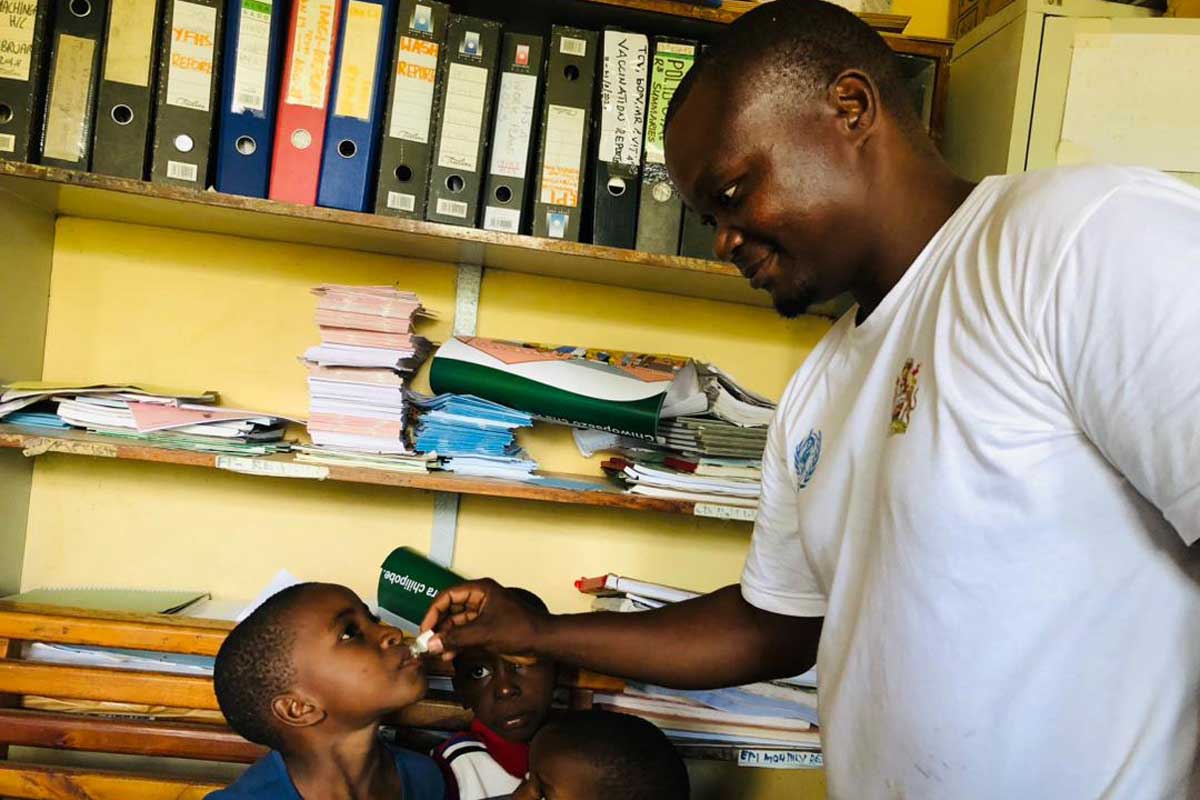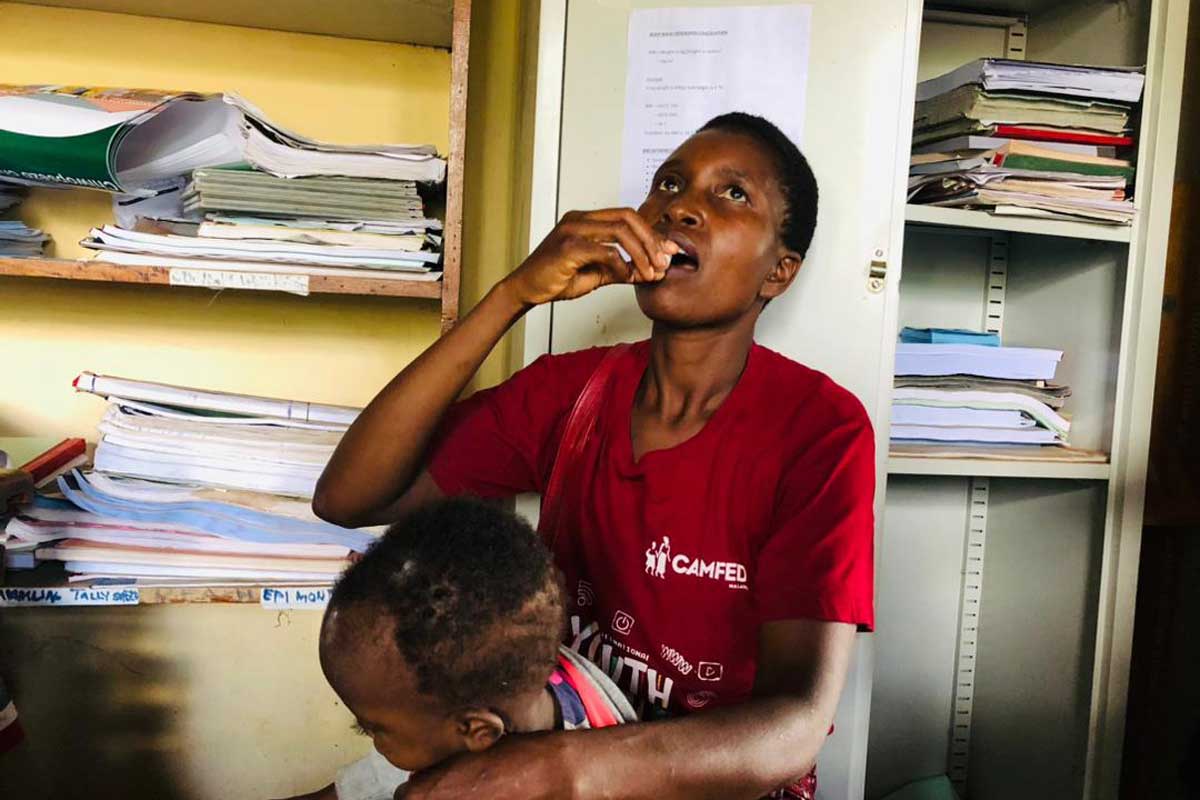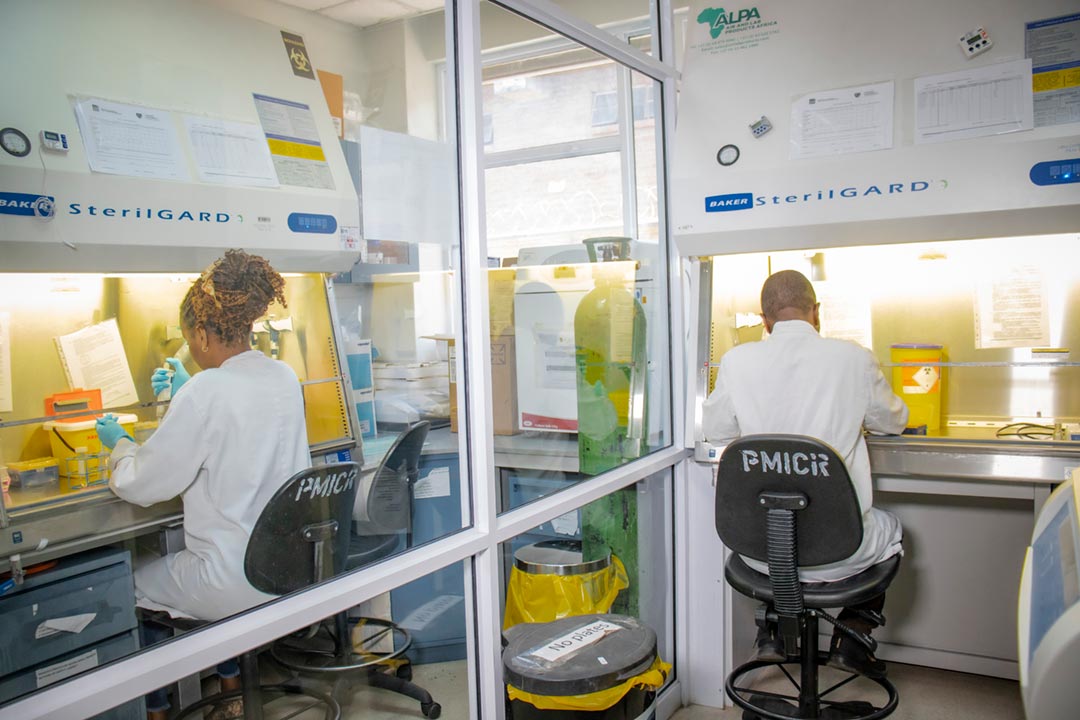"It was not a normal stomach problem": cholera provokes fear and fightback in Malawi
An outbreak of cholera is currently taking hold in Malawi, two years after a major epidemic claimed nearly 2,000 lives. A vaccination campaign is bringing hope to a weary population.
- 20 February 2025
- 6 min read
- by Rabson Kondowe , Bonface Chisale

When Beatrice Chirwa’s six-year-old daughter complained of a stomach ache last September, she thought it was a minor issue that be treated with home remedies. But the child’s condition only worsened and by the next day, her four-year-old sister also fell ill with similar symptoms.
“They had diarrhoea, they seemed very weak, and their body temperature was very high, then I realised that it was not a normal stomach problem,” recalled the 28-year-old mother of two.
Chirwa rushed her daughters to Machinga Health Centre in southern Malawi, where they were told they had contracted cholera.
Four months later, Chirwa and her daughters are back at the health centre in Machinga District – this time, not for treatment, but to receive an oral cholera vaccine. “Cholera is such a big problem here. I’m just grateful that my children survived,” she said.
They have joined a cluster of eight others at the clinic’s vaccination site, just outside the hospital block, all waiting patiently to receive their dose of the vaccine. On 20 January, Malawi launched a four-day oral cholera vaccination (OCV) campaign in the hotspot districts of Chitipa, Karonga, Balaka and Machinga.
According to the Ministry of Health, 301 cases and 15 deaths have been recorded since the outbreak re-emerged in September 2024 in the northern districts of Chitipa and Karonga, spreading to the southern parts of the country in Balaka and Machinga.
A recurring battle
Malawi has been experiencing frequent cholera outbreaks since its first reported case in 1973. The outbreaks of 1998–1999 and 2001–2002 were the high-water mark until 2022. In December that year, the government declared the cholera outbreak a National Public Health Emergency.
That outbreak claimed 1,772 lives and infected 59,376 people before it was brought under control. The Ministry of Health officially declared the outbreak over in August 2023, thanks to widespread vaccination and awareness campaigns that helped the population manage their exposure to the bacterium, which spreads in contaminated water and food.

A campaign against cholera
To prevent the further spread of the current outbreak, the Ministry of Health set up vaccination sites in health centres across the affected districts for the duration of the campaign, with community health workers also moving into communities, visiting households and schools, to ensure the vaccine reached more people.
The country’s Ministry of Health distributed 720,000 doses of OCV across the four districts, which it received from the Gavi-funded global OCV stockpile.
Dr Wilfred Chalamila Nkhoma, co-chairperson of the Presidential Taskforce on Public Health Emergencies, said the key is addressing the root causes of cholera. “We need to constantly improve the water quality, sanitation and hygiene,” he said. “However, vaccines also play an important role not only for those at risk, but also for those who have recovered because the bad thing about cholera is you can get it more than once even if after you recover.”
While the OCV typically requires two doses for optimal protection, this campaign is administered in a single dose to reach as many people as possible. “The one-time dose offers protection for at least a year. It’s better to protect as many people for that one year than for us to protect only half the number that is going to get the vaccine,” Dr Nkhoma said. Dr Nkhoma’s is an understandably conservative reckoning: studies have found that protection from a single dose lasts “at least two years”, though protection does drop off faster than for a two-dose series of the vaccine.
If the disease is to spread further beyond the four districts, Dr Nkhoma says they will make a new application to receive more doses.
“It’s like it happened yesterday”
For many in Machinga, memories of the 2022 cholera outbreak are still fresh. Elias Wisiki, a 30-year-old resident of Alikunde village, recalls nearly losing his cousin to the disease.
“It’s like it happened yesterday,” he began. “He vomited uncontrollably and his diarrhoea was very bad. Doctors said he had lost so much water in his body. No one wanted to be near him for fear of infection, but I had to stay by his side. It was a painful experience. I was lucky I didn’t catch it.”
When he heard of the vaccination campaign through a megaphone announcement in his village, he didn’t hesitate to go to the vaccination site to get his dose. “I don’t want this to ever happen to my family again,” he said.
Machinga District, which is surrounded by Lake Chirwa, remains a cholera-prone zone due to the lake’s central and multifarious role in daily life. Traditional Authority Mkula in Machinga, real name Omar Wilson Ngulinga, believes there is an urgent need to strengthen health services in the district.
“People from the lake quite often move into the villages, which poses a big risk of outbreaks,” he said. “We need more health workers to ensure continuous sensitisation and early communication with health officials and not only when the disease has occurred.”
But Peggie Mkwezalamba, a Senior Health Surveillance Assistant at Machinga Health Centre, cites inadequate resources at the health facility as a big strain. “We don’t have enough supplies such as chlorine to disinfect water. We have to wait for Machinga District Hospital to send some here” she said. “As a result, many patients end up going to the district hospital to seek medical attention, which is a bit far. Sadly, many lives have been lost during an outbreak in the villages where we operate because of such issues.”
For the campaign, Mkwezalamba says 32,530 residents surrounding the health centre were targeted to receive the vaccine.
Have you read?
Lessons from past outbreaks
Dr Nkhoma believes there’s a need to strengthen healthcare delivery in remote areas. “We’ve learned the importance of equipping peripheral health facilities to identify and manage cases close to where they occur,” he said. “Many people live far from health centres, so it’s crucial to deploy teams to set up treatment facilities within affected districts.”
Nkhoma said they also learned that traditional leaders are key in disseminating messages when there’s an outbreak and helping to mobilise the population to work towards protecting themselves.
Looking ahead, the Ministry of Health has developed a five-year cholera control plan aimed at reducing the disease’s incidence rate by 90% and lowering the case fatality rate to below 1% by 2030.
As part of this strategy, the government plans to conduct preventive cholera vaccination campaigns targeting people in high-risk areas at least twice between 2026 and 2030. This proactive approach aims to build immunity in vulnerable communities rather than responding only during outbreaks.
While at Machinga Health Centre, Chirwa felt relieved after getting the vaccine with her daughters. “I believe we are protected from future outbreaks.”
However, she refuses to be complacent. “I will continue using chlorine in our drinking water at home and making sure we use soap in our toilet and wash hands every time we eat,” she said.






